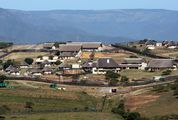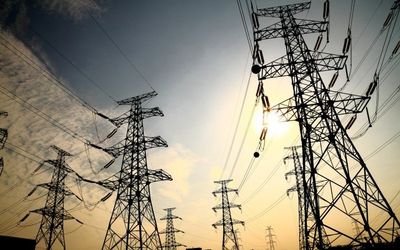IPSA will ask its shareholders to vote in favour of a proposal to sell its operating assets to discharge debt and save it from going into business rescue.
Ipsa, the owner of a 18MW gas-fired power station in Newcastle, suffered from being an early mover in producing gas-fired power. The Department of Energy is only now starting a formal process to buy gas-fired power from independent producers, with appropriate offtake contracts.

Ipsa’s plans to build a large gas-fired power plant at Coega were stymied by being unable to secure a long-term power purchase agreement with Eskom. Instead, it built a smaller plant in Newcastle, which has been supplying Eskom on short-term contracts.
Ipsa’s proposal will be put to a shareholder’s vote at a February 16 meeting.
Acting CEO Mark Otto said on Wednesday it had been extremely difficult for Ipsa, which is listed in Johannesburg and London, to raise funding from its shareholders for maintenance and expansion of its Newcastle plant without a long-term Eskom supply contract.
It is negotiating a two-year offtake agreement from April.
Sterling Trust of the UK, Ipsa’s biggest single shareholder at 29.6%, was put into administration in October.
Ipsa has agreed to sell its operating assets, held in a company called Blazeway, to a private company, Sloane Corporation, for £5,000 and the assumption of £1.8m of debt.
This will satisfy most creditors. The debt owed to Ethos Energy will be met from the sale of other plant and equipment and amounts owing to it by Rurelec, which bought its gas turbines in 2009.
Sloane Corporation is wholly owned by Peter Earl, a former director of Ipsa, who is also the founder of a UK power development company, Independent Power Corporation (IPC), which is headquartered in London. He owns half the shares of IPC, which is installing new gas-engine capacity at Newcastle, due to come on stream in April.
Asked how Sloane could make the Newcastle plant viable if Ipsa had no been able to do so, Mr Earl said NewCogen was a well-designed plant when it was built, but it was always designed to co-generate electricity and steam for industrial users.
In recent years, it has produced electricity only, so it has not operated optimally.
The new high-efficiency gas engines being installed will improve overall plant performance, bring nominal plant capacity to more than 20MW and make it possible to resume steam generation.
"In future, the Newcastle plant provides a springboard for adding new, high-efficiency gas turbine capacity exclusively designed to produce clean, low-cost electricity as part of an 80MW expansion programme, which will increase capacity on site by a factor of four times," Mr Earl said.




















Change: 2.25%
Change: 1.94%
Change: 3.13%
Change: 0.69%
Change: 7.67%
Data supplied by Profile Data
Change: 1.06%
Change: 0.47%
Change: 2.25%
Change: 0.00%
Change: 0.23%
Data supplied by Profile Data
Change: -0.36%
Change: -0.41%
Change: 0.46%
Change: 0.52%
Change: 0.11%
Data supplied by Profile Data
Change: 1.17%
Change: 2.69%
Change: 1.16%
Change: 0.70%
Change: -1.95%
Data supplied by Profile Data